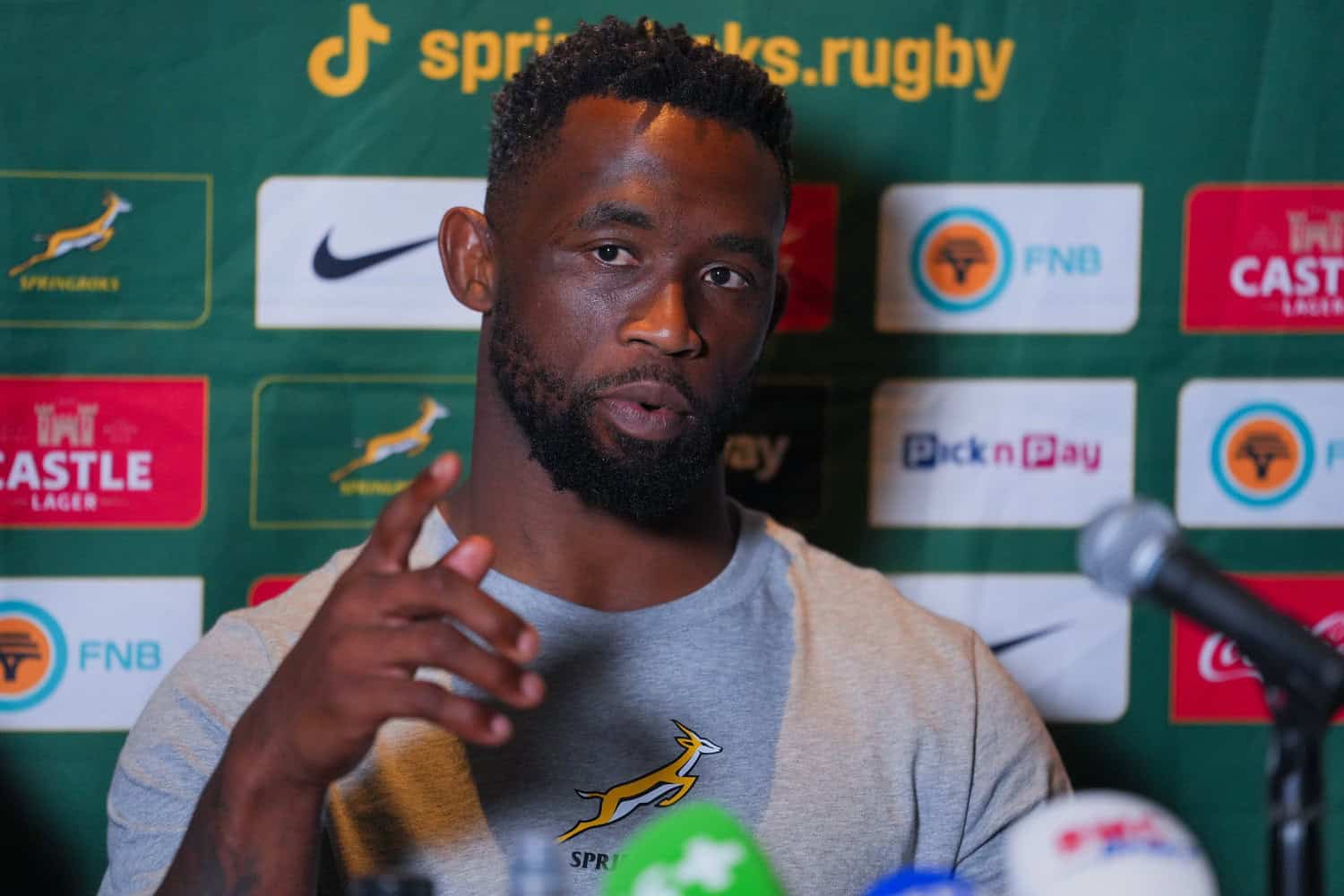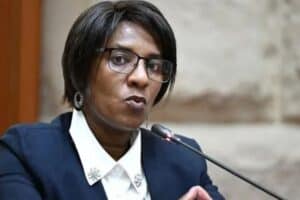Springbok captain Siya Kolisi has spoken out about the Gender-based violence and Femicide being declared a national disaster.

Springbok captain Siya Kolisi has added his voice to the fight against gender-based violence and femicide (GBVF), saying everyone in society should stand up and let their voices be heard.
Kolisi, who has led the Boks to two World Cup titles and two weekends ago earned his 100th Test cap, was speaking on the eve of his team’s Test against Ireland in Dublin on Saturday.
The Bok skipper was asked his thoughts about President Cyril Ramaphosa declaring GBVF a national crisis and hours after the National Disaster Management Centre (NDMC) classified it as a national disaster, under Section 23 of the Disaster Management Act.
‘There must be a plan’
While Kolisi said it was good news that GBVF had been acknowledged, it was important that concrete steps be taken.
“Acknowledging it is one thing, but action has to be taken. There must be a plan,” said Kolisi on Friday.
“Everyone has a role to play. You don’t have to have money, but everyone has a voice.
“In the community, be an example… if we had more men who’d lead us in the right way, we’d be in a better place…
“We all have a part to play. I think a lot of organisations are doing work in this space… but there is still so much that can be done.”
‘Human issue’
Friday saw countrywide protests take place in the streets of South Africa, with women urged to “withdraw from the economy for one day”, and lie down for 15 minutes at 12pm in honour of the 15 females who are murdered in the country every day.
Kolisi said he witnessed GBV first-hand growing up as a child in a township in the Eastern Cape.
“I grew up in a community where it was a big problem. When you see it every day it becomes normal… I’ve seen it personally, with people I love.
“I couldn’t do anything then, but now I have a platform, I’m able, with resources … to try and make a difference.
“I’ve seen the videos of people walking in the streets in support of this… we’ll see as a team also what we can do to support this.
“We all have people we love. It’s a human issue, it affects everyone, and not only in South Africa. We must all stand up and raise our voices and do what we can.”






